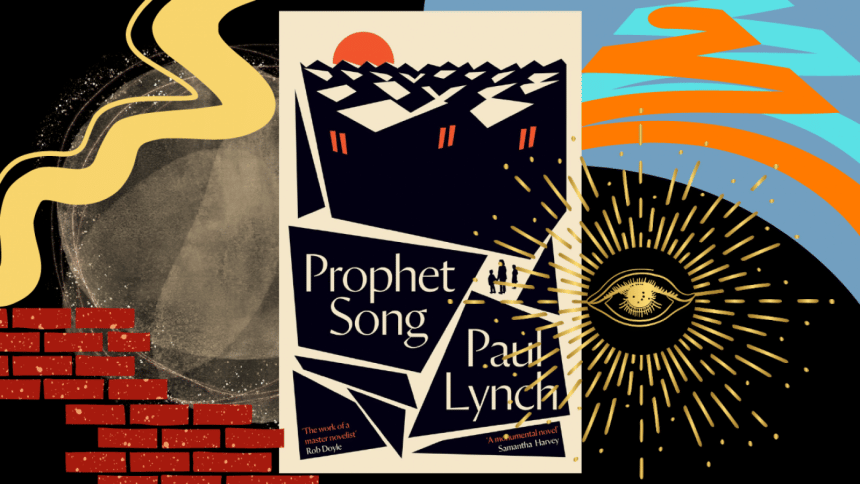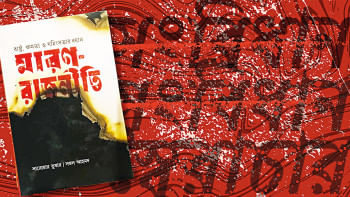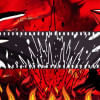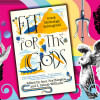'Prophet Song': Full of sound, fury, and significance

How many books have you read that made you cry? In my opinion, since books are not as visual or as audible as movies (not counting audible books) it takes an immense amount of effort for an author to delve into the farthest depths of the human psyche and emotions and pen a book that leaves the soul breathless, torn, and scarred. As far as I remember, the first book that had tears running down my face was John Steinbeck's Grapes of Wrath (1939). The next was Prophet Song by Irish author Paul Lynch who bagged the 2023 Booker Prize.
Prophet Song is a harrowing tale of Eilish Stack, a loving wife and a mother of three sons—the youngest one barely a toddler—and a daughter. Her husband, Larry, is a teacher and also a senior member of the Teachers' Union in Ireland. They appear to be a regular family until the Garda National Services Bureau crosses their threshold and darkens their lives forever.
The 309-page-long dystopian novel is an oppressive account of Eilish who tries to keep her family from falling apart as everything around her crumbles. We see and feel through her eyes the suspense, fear, uncertainty, and death and destruction brought on by the state, the resistance by the rebel forces, and her desperate struggle to stay sane. Reading the book was like watching Al Jazeera these days where each morning we see hapless Palestinian mothers beating their breasts as they bid farewell to their children. Eilish symbolises the mothers of the disappeared and the dead.
The book is a testament to the courage, unconditional love, and resilience of women like Eilish; she represents women all over the world irrespective of their race, religion, class, creed, and colour who try until their last breath to protect their children. Eilish is always on the move, handling irritable teenagers, paying attention to their needs, nursing an infant, doing school duty, making sure there's food on the table, working as a microbiologist, taking care of her father who has dementia, and on top, facing the hostile Garda officers. Ridden by guilt and blaming herself for losing her family members, she's on a desperate journey to make things right.
Shattering all norms of punctuation and syntax, Lynch uses walls of text that translate into the claustrophobic environment that Eilish finds herself in. A few sentences exceed a page, each line loaded with a sense of urgency, helplessness, and an amalgam of intense emotions that choke the reader. Another notable point is the absence of quotation marks when the characters are speaking; not even a separate line demarcates what another character is saying—it's life flowing in organised chaos.
Vivid imagery is used from the very first page of the novel as Eilish tries to be at one with the descending darkness of an evening. The pervading dark and ominous tone is present throughout the book which is almost given shape and form; it crawls and creeps inside the Stack household and follows Eilish around. Her emotions are given wings as if they are not her own: "She looks out into the widening sky seeking some kind of release, seeing her wrath fly before her, watching it fly to cold defeat." There are more instances of such out-of-body experiences, making the book connect with us on a deep level.
The theme of migration is secondary and does not feature prominently until toward the end of the story. Several characters are shown to be reluctant to be uprooted from their homes and we can identify with their dilemma. This angle helps us to understand the current situation where we question why migrants risk their lives to cross the high seas in search of a better life. With the devil behind and the deep blue sea in front, the choice is clear.
This novel weighs heavy on the nerves and emotions. I had to put it down after a particular morgue scene as it was too overpowering. The book is a thunderous account of a nation plagued by the Emergency Powers Act and how it destroys the sanity and lives of people. It reduces them to a begging and grovelling lot, the luckier of them finding a way out of the country but not before paying exorbitant sums to ruthless extortionists and facing inhumane living conditions like the ones we presently see in Khan Younis refugee camps. There is almost no relief in the novel, except when Eilish finds out about her father.
Prophet Song ends but the story doesn't. It belongs to the fiction category but for me, it's as nonfiction as it can get.
Zertab Quaderi is an SEO English content writer and social media and marketing consultant by day and a reader of both fiction and non-fiction books by night. In between, she travels and dabbles in watercolour painting.

 For all latest news, follow The Daily Star's Google News channel.
For all latest news, follow The Daily Star's Google News channel. 











Comments